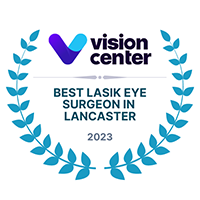More and more people are making the decision to make healthier food choices every day. Generally, the goal is to improve heart health and lose weight, which are both valid and great goals, but certain foods can also actually help your eye health and reduce your risks of developing certain eye diseases. Studies have shown that your risks of developing cataracts, macular degeneration and dry eye can be reduced if you make healthier food choices.
Here are a few different food groups that you should explore adding to your diet:
Orange Vegetables and Fruits
As I’m sure most people know, carrots are considered to be good for your eye health. This is because they have high levels of Beta Carotene in them—a precursor to Vitamin A and the reason for the orange color. If a fruit or vegetable is orange, chances are there is high levels of Beta Carotene involved. Beta Carotene helps to improve your vision at night and in dark environments. Look to add squash, carrots, apricots and/or pumpkin to your diet for a healthy boost to your eye health.
Dark Green Vegetables
If you haven’t already jumped on the kale band wagon, you might want to consider it. Dark green vegetables like kale, spinach, broccoli and collard greens all include two essential nutrients—lutein and xeaxanthin. Both of these important nutrients are known to help reduce damage to your cells and slow the effects of macular degeneration—a progressive vision loss eye disease that is seen in many senior citizens.
Fatty Fish
The omega-3 fatty acids that are commonly found in salmon, tuna and sardines have been known to help reduce your risks of developing eye inflammation and dryness—this in turn helps to reduce your risks of developing dry eye and macular degeneration. Adding some oily fish to your diet is not only good for your overall eye health, but also has health benefits for your heart.
Nuts
Vitamin E is considered to be a powerful antioxidant that can help if you have issues with heart disease and glaucoma. Glaucoma is a serious eye disease that can cause major vision loss if not monitored carefully. Certain studies have shown that vitamin E can also reduce the progression of vision loss from cataracts. Nuts are a great source of Vitamin E, but be careful you aren’t over eating them because they are high in sodium and calories.
For more information on how you can build your diet around improving your eye health, consult your eye doctor and they can help you review your options.






